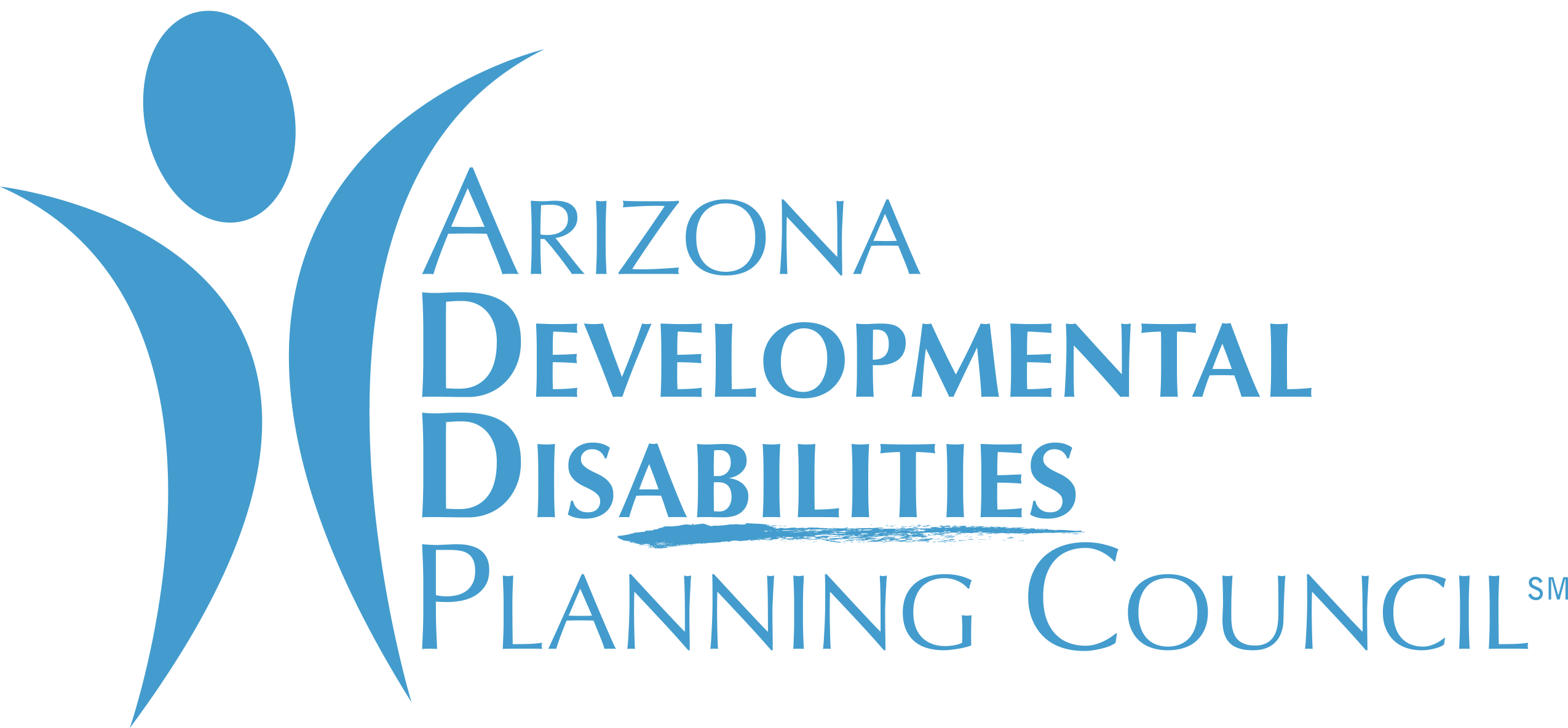2023 Legislative Activities
Note: SB stands for Senate Bill and HB stands for House Bill.
First, let’s talk about a bill that took a unique path to passage. Senate Bill (SB) 1291, as introduced, made various changes to a statute related to guardianship and conservatorship, but ultimately became a bill that recognized Supported Decision-Making (SDM) in Arizona law. How did this happen? Well, Senator John Kavanagh got the bill through the Senate but needed help from Representatives Alexander Kolodin and Jennifer Longdon to move it across the finish line.
Once SB 1291 arrived in the House of Representatives, Rep. Kolodin introduced a “strike everything” amendment, which proposes to delete the entire text of an existing bill and substitute new language, essentially making it a completely different bill. This striker made adjustments to Sen. Kavanagh’s original guardianship proposal and incorporated language from Representative Longdon’s past and current bills regarding Supported Decision-Making, including HB 2174 from 2023. After much debate and a public Town Hall hosted by proponents to explain their reasons for supporting the amended bill, SB 1291 passed the House, returned to the Senate for concurrence, and was delivered to Governor Hobbs in mid-June. It was signed by the Governor on June 20, 2023.
SB 1291 adds a new article to Title 14 (Trusts, Estates, and Protective Proceedings) regulating "supported decision-making agreements" (defined in the statute) and allows an adult to voluntarily enter into a supported decision-making agreement with a supporter under which the adult authorizes the supporter to provide supported decision-making and assist the adult in specified tasks.
It’s also worth noting SB 1411. This bill would have required a parent/caregiver of a minor child receiving Division of Developmental Disabilities (DDD) services to become the guardian of the minor child “automatically and immediately” when he or she turns 18 – whether the guardianship was deemed necessary by a court of law or not. The bill was publicly opposed by a large number of disability advocates. In response, the sponsor of the bill, Sen. Justine Wadsack, called a stakeholder meeting with representatives of the disability community to try persuading them to help move it forward. The advocates were unconvinced, and even managed to extract several concessions from Sen. Wadsack regarding the need for community education about guardianship. In the end, SB 1411 made it through the Senate but died without further action in the House.
Also of interest to the I/DD community was SB 1710, a bill that would make various changes to the oversight and management of the Arizona State Hospital (ASH). SB 1710 would establish a 5-member Arizona State Hospital Governing Board and transfer responsibility for administering the Hospital to the Board, from the Arizona Department of Health Services (ADHS).
More than 30 disability advocates showed up at the stakeholder’s meeting, using that discussion to increase awareness of Supported Decision-Making, as well as the need for guardianship reform. Way to go, advocates!
Most of the disability community opposed the bill, agreeing there are problems with ASH but finding no meaningful solutions in this legislation. One of the main concerns with the original bill was the addition of I/DD beds at ASH, meaning greater occupancy at an already troubled facility. Through the amendment process, this provision as well as others were eventually taken out. A significantly amended version of the bill was eventually signed by the Governor on June 20.
HB 2559, which was signed by Gov. Hobbs on June 19, directs the Arizona Department of Child Safety (DCS) to determine eligibility for benefits administered by the Social Security Administration (SSA) or the U.S. Department of Veterans Affairs (VA) for all children in DCS care and apply for those federal benefits on the children's behalf if they are deemed eligible. One of the options DCS must consider for the child is an Achieving a Better Life Experience (ABLE) account, or any other trust account determined not to interfere with Social Security or the asset limitations for any other benefit program. ABLE accounts are investment programs that offer persons with disabilities, their families, and friends, the option to contribute to a tax-exempt savings account for disability-related expenses – all without jeopardizing benefits eligibility. HB 2559 will help ensure youth moving from foster care into adulthood will have some level of personal assets available to assist them in this transition.
SB 1315, which passed unanimously through the House and Senate, requires that emergency response plans developed by school district governing boards address how the school and emergency responders will communicate with and help students with disabilities. This is first-of-its-kind legislation in Arizona, considering the unique needs of students with disabilities during emergency situations. It was signed by the Governor on May 8. Other disability-related bills from the 2023 session (all signed into law by Governor Hobbs):
House Bills
HB 2064 - Property tax exemption; disability; qualifications
For the purpose of the property tax exemption for persons with total and permanent disabilities, the term "person with a total and permanent disability" is defined as a person who is unable to engage in any substantial gainful activity by reason of any physical or mental impairment that is expected to last for a continuous period of at least 12 months or result in death within 12 months as certified by a "competent medical authority" (defined). Signed by the Governor on April 18.
HB 2166 - DHS; licensure; group homes
Beginning July 1, 2024, "behavioral-supported group homes" (defined) that are operated in Arizona by a service provider and that are under contract with the Arizona Department of Economic Security are required to be licensed by the Arizona Department of Health Services (ADHS). Establishes a list of rules that ADHS is required to adopt for behavioral-supported group homes, including ensuring that each client's "behavioral treatment plan" (defined) is developed and monitored by a clinical professional with specified qualifications, requiring direct care staff in a behavioral-supported group home to have specified training and experience, and ensuring that each client has an "integrated treatment plan". Signed by the Governor on April 28.
HB 2198 - Claimant; guardian ad litem; procedure
When a claimant for workers' compensation or death benefits is a minor or incapacitated person, the Industrial Commission may appoint a guardian ad litem to represent the best interests of the minor or incapacitated person. Deletes authorization for the Commission to appoint a trustee to appear for the minor or incapacitated person. Signed by the Governor on April 17.
HB 2456 - ASDB; continuation
The statutory life of the Board of Directors of the Arizona State Schools for the Deaf and the Blind (ASDB) is extended four years to July 1, 2027. Retroactive to July 1, 2023. Signed by the Governor on April 26, 2023.
Senate Bills
SB 1273 - Early ballot delivery; instruction requirements
The instructions for the guidance of voters and election officers at an election, and the instructions included in the envelope with an early ballot are required to include information that a person may only handle or return their own ballot or the ballot of family members, household members, or persons for whom they are caregivers, and that it is unlawful to handle or return the ballot of any other person. Signed by the Governor on May 8.







